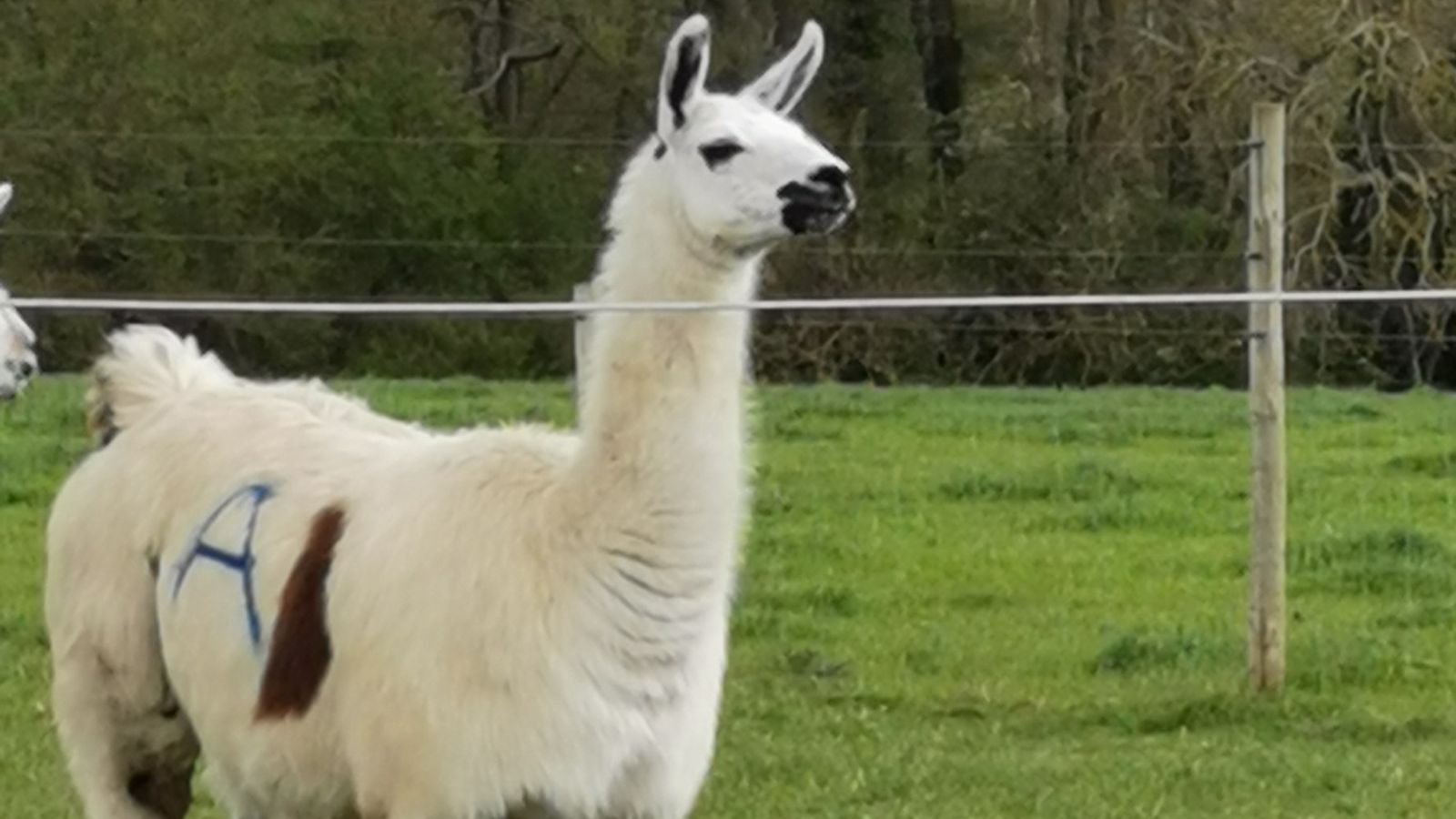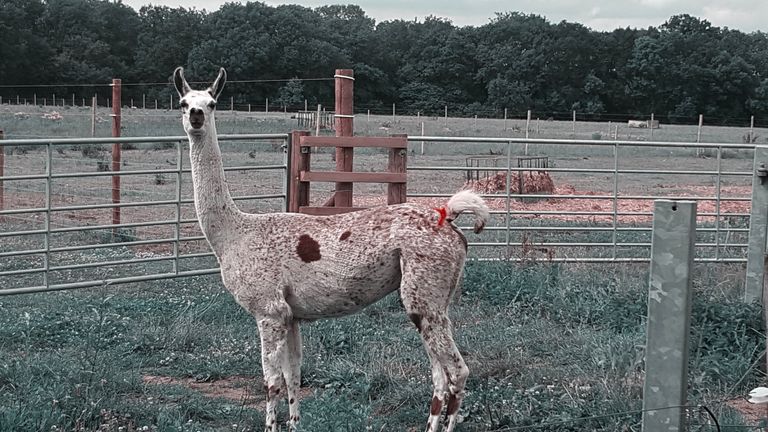Llamas produce a unique kind of antibody which scientists believe could offer a new frontline treatment against COVID-19, administered via a nasal spray.
Nanobodies, a smaller and simpler form of antibody produced by llamas and camels, can effectively target the novel coronavirus, new research published in the journal Nature Communication has found.
Scientists at the Rosalind Franklin Institute in the UK have identified short chains of these molecules that can significantly reduce signs of COVID-19 when given to other infected animals.
Public Health England hailed the research as offering “significant potential for both the prevention and treatment of COVID-19” and added that the nanobodies “are among the most effective SARS-CoV-2 neutralising agents we have ever tested”.
The nanobodies were found to be binding to the virus particles in cell cultures and could provide a cheaper and easier form of treatment compared to antibodies harvested from humans and shared through an infusion.
“Nanobodies have a number of advantages over human antibodies,” said Professor Ray Owens, head of protein production at the Rosalind Franklin Institute and lead author of the research.
He added: “They are cheaper to produce and can be delivered directly to the airways through a nebuliser or nasal spray, so can be self-administered at home rather than needing an injection. This could have benefits in terms of ease of use by patients but it also gets the treatment directly to the site of infection in the respiratory tract.”
The team was able to generate the nanobodies by injecting a portion of the SARS-CoV-2 spike protein into a llama called Fifi, who is part of the antibody production facility at the University of Reading.
Fifi did not become sick as a result of the injection, but her immune system was triggered to fight off the spike protein by generating nanobodies against it.
The researchers were able to purify four types of nanobody chains from a blood sample that are capable of binding to the virus.
One of these chains was administered to a hamster infected with the virus and led to “a marked reduction in disease” with the treated critters “losing far less weight after seven days than those who remained untreated” and showing a lower viral load.
“Because we can see every atom of the nanobody bound to the spike, we understand what makes these agents so special,” said Professor James Naismith, Director of the Rosalind Franklin Institute, who helped lead the research.
“While vaccines have proven extraordinarily successful, not everyone responds to vaccination and immunity can wane in individuals at different times,” explained Professor Naismith.
“Having medications that can treat the virus is still going to be very important, particularly as not all of the world is being vaccinated at the same speed and there remains a risk of new variants capable of bypassing vaccine immunity emerging.”

